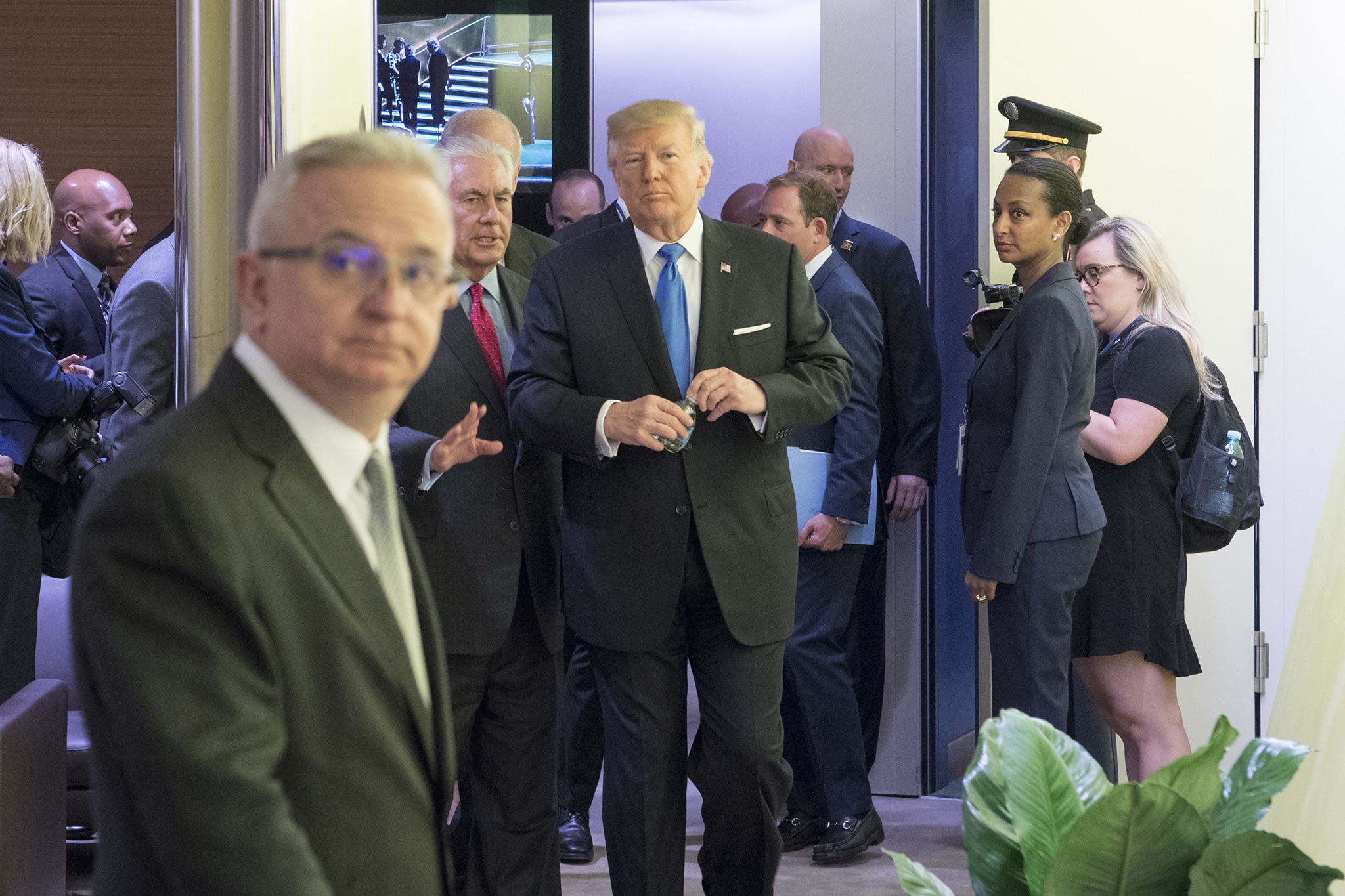
The US and North Korea are engaged in the increasingly hostile war of words as Pyongyang is making progress towards being able to hit the US mainland with a nuclear-armed intercontinental ballistic missile.
North Korea has threatened to detonate a hydrogen bomb in the Pacific after US President Donald Trump warned in his speech to the United Nations General Assembly on Tuesday that the US could totally destroy North Korea if Washington was forced to defend itself or its allies against it and called other nations to cut the regime off from its sources of revenue (such a test has not been carried out in decades). North Korean foreign minister likened Mr Trump’s threat to the “sound of the barking dog”.
Mr Trump branded the North Korean supreme leader Kim Jong-un a “Rocket Man” bent on a “suicidal mission” in his UN speech. On Friday, Mr Kim responded personally by calling Mr Trump “mentally deranged US dotard”, “a gangster fond of playing with fire”, who had “insulted me and my country in front of the eyes of the world”. He said that US President’s belligerent rhetoric convinced him that his decision to continue developing the nuclear programme was the correct path and that “it is the one I have to follow to the last”. Mr Trump responded on Twitter, by calling Mr Kim “obviously a madman”. Pyongyang will most likely respond to that by conducting a long-range ballistic missile test in defiance of the United Nations. China, North Korea’s largest trading partner and its main ally, has called for restraint and dialogue.
The Kim regime’s latest threat came hours after Mr Trump issued a new executive order, empowering his government to punish foreign individuals, financial institutions and companies that facilitate financial transactions and trade with the North Korean regime. The fresh measures followed two rounds of sanctions by the UN Security Council.
The existing UN sanctions affect 90 per cent of North Korea’s exports. In addition to that, the US has placed secondary sanctions on Chinese and Russian firms that facilitate North Korea’s nuclear and missile programmes. China, which reportedly ordered its banks to stop working with North Korean financial institutions, has resisted harsher measures that could lead to the collapse of the Kim regime.
Earlier this month, North Korea detonated a nuclear device at its test site in the country’s north-east, its sixth and most powerful underground nuclear test. The explosion caused a 6.3 magnitude earthquake that was felt over the Chinese border. It is estimated that the nuclear test had a yield of 250 kilotons. Testing a nuclear device beyond its borders will mark a major escalation in tensions over Pyongyang’s nuclear programme.
Safe haven assets jumped on Friday, with the Japanese yen traded 0.5 per cent higher at Ұ111.97 per dollar. Gold was up 0.2 per cent at 1,297.80 dollars per ounce. Regional stocks fell.
UN Photo/Eskinder Debebe